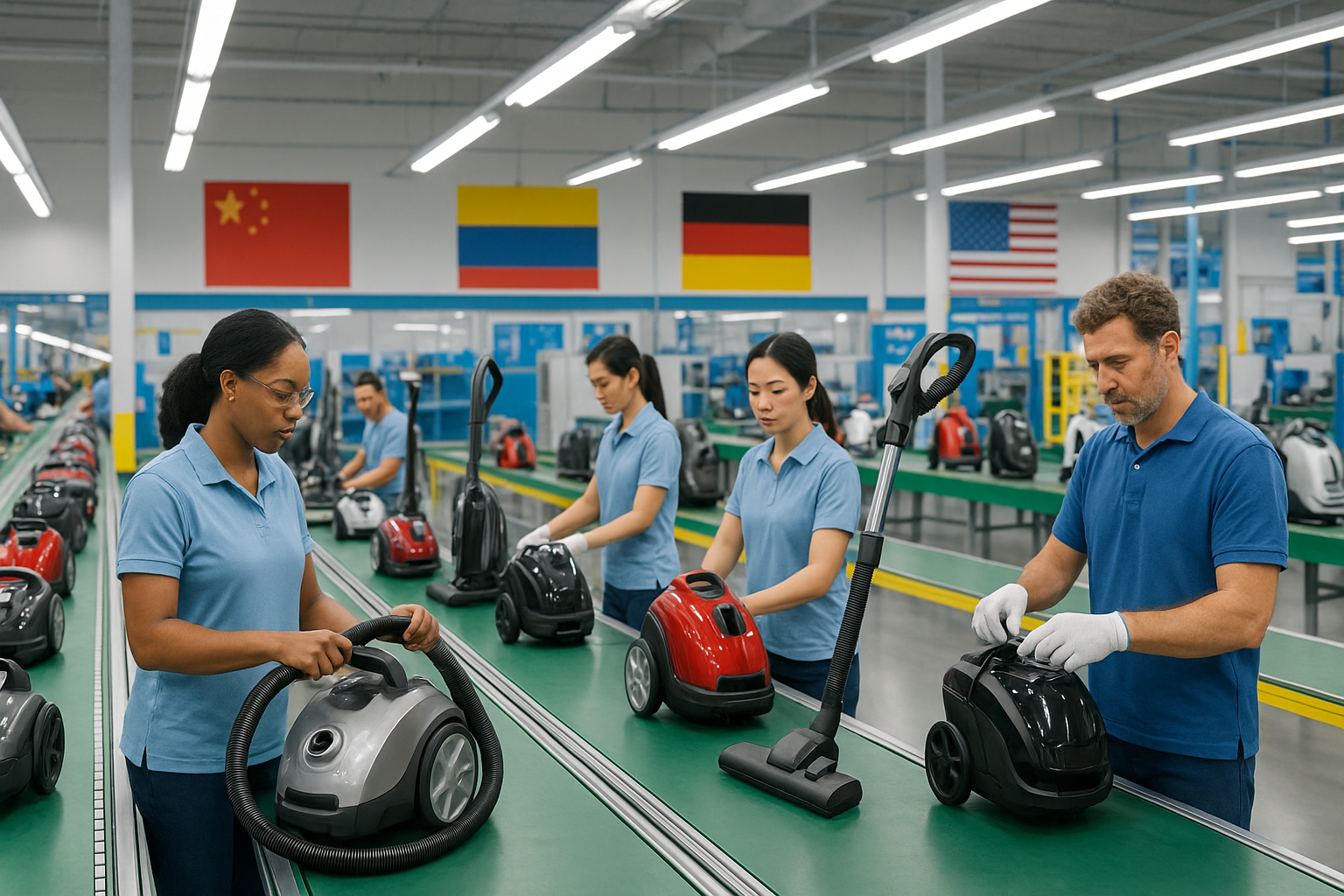
The vacuum cleaner industry is a global marketplace, with production centers strategically located around the world to meet diverse consumer needs for suction power, filtration, portability, and specialized features. Understanding where most vacuums are manufactured helps buyers compare not just origin, but critical specifications such as weight, noise, attachments, runtime, and whether a model is corded, cordless, or even a Wet Dry Vacuum Cleaner.
1. China: The Global Leader in Variety and Innovation
China leads the world in vacuum cleaner manufacturing, producing everything from affordable models to advanced robotic and Wet Dry Vacuum Cleaners. The country’s expansive manufacturing network enables brands to offer vacuums with varied suction power, HEPA-level filtration, low noise ratings, and a wide range of attachments. Whether you want a lightweight cordless stick vacuum with long runtime or a high-capacity corded model for deep cleaning, Chinese factories can deliver. According to Statista, over half the world’s vacuum cleaner exports originate in China, meeting global demand for both performance and value.
2. Germany: Precision Engineering and Quiet Performance
Germany is renowned for premium quality and meticulous engineering. German-made vacuums—especially from brands like Miele—emphasize robust suction power, superior filtration, and ultra-quiet operation. These products often feature ergonomic designs with optimized weight distribution, versatile attachments, and the option for both corded and cordless models. As DW.com notes, German vacuum cleaners set the bar for durability, advanced filtration, and quiet performance, making them a favorite in households that prioritize longevity and comfort.
3. United States: Innovation and Versatility
The United States continues to contribute to the industry with innovative designs and brand diversity. American brands offer a mix of corded and cordless vacuums, as well as Wet Dry Vacuum Cleaners tailored for both home and workshop use. U.S. models focus on maximizing portability, runtime, and user-friendly attachments, with manufacturers balancing suction power and weight for everyday convenience. According to Consumer Reports, American vacuums stand out for their adaptability to changing household needs and cleaning preferences.
Conclusion
The world’s vacuum cleaner manufacturing is shaped by the combined strengths of China, Germany, and the United States, offering products that balance suction power, filtration, weight, noise, runtime, attachments, and versatility—from corded to cordless and Wet Dry Vacuum Cleaner models. This global expertise ensures options for every cleaning challenge.
For more insights on vacuum cleaner innovations and features, visit www.lxvacuum.com.
















